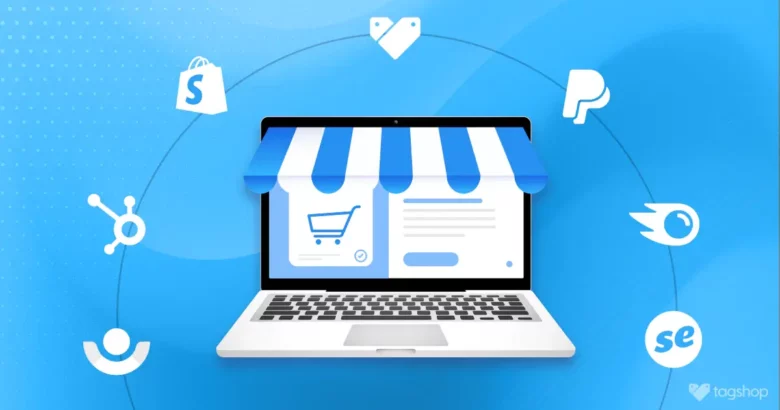Ecommerce requires precision, attention, and consistency across many processes. Business owners can sometimes get overwhelmed by inventory management, customer service, marketing, and shipping. Automation solutions have transformed online commerce by streamlining it and increasing efficiency. By using the right automation technology in your ecommerce platform, you can save time, eliminate errors, and focus on growth and customer experience as a business owner.
Automated Inventory Management
All ecommerce operations depend on inventory. It can be quite challenging to manually update product listings, inventory levels, and track sales channels. Inventory automation software updates inventory levels as sales occur, alerts business owners when stock is running low, and syncs inventory across Shopify, Amazon, and eBay. This software prevents overselling and out-of-stock situations that can lead to unhappy customers and lost money. Real-time inventory management enables organizations to purchase better and operate more efficiently.
Improve Order Fulfillment and Shipping
Automation can also improve order processing speeds, including picking, packing, and shipping orders. Online stores can use shipping automation technology to generate labels, calculate costs, and track deliveries. These technologies can also distribute orders to warehouses based on geographic location, reducing delivery times and costs. Automated tools can send orders that are dropshipped directly to suppliers. Automation simplifies logistics and ensures fast and accurate product delivery. This increases customer satisfaction and leads to repeat purchases.
Automate Customer Service for Faster Support
Ecommerce buyers rely on customer service to answer product questions, verify orders, process returns, and more. Chatbots and AI help helpdesks can answer questions immediately and provide 24/7 support. These tools can answer questions, change shipments, and process returns or refunds under certain conditions. Their use saves customer service teams time and ensures customers receive fast and consistent help, building trust and loyalty.
Improve Email Marketing with Automation
Email marketing is the best way to engage consumers, announce promotions, and refill shopping carts. For growing businesses, manually sending targeted, timely emails is impractical. Marketing automation technology allows you to categorize audiences, schedule campaigns, and send emails triggered by user activity. Customers who abandon their carts can receive email reminders for discounts. Automated email sequences can offer loyalty programs and product recommendations. These methods allow businesses to stay connected with their customers and increase sales without manual intervention.
Personalize the Customer Experience through Automation
Modern consumers expect personalized experiences. AI automation technology can evaluate user data and customize the shopping experience in real time. Examples include using browser history to promote products, dynamic pricing based on demand, or personalized homepage content for returning customers. Personalization tools increase engagement, repeat visits, and average order value. By automating this level of personalization, e-commerce businesses can better compete and provide a personalized experience for customers.
Social Media and Ad Automation
Social media marketingr e-commerce is powerful, but it requires effort to manage many channels. Businesses can use social media automation tools to schedule posts, track engagement, and monitor the performance of campaigns on Facebook, Instagram, and Twitter. Ad management software automates bidding for paid ad campaigns, budget changes, and A/B testing. Businesses can save time and money and maintain visibility by automating their social media and advertising efforts.
Improving Analytics and Reporting Automatically
To grown e-commerce business, you need to understand what works and what doesn’t. Analytics automation solutions evaluate sales, traffic, marketing, and customer behavior data. These technologies create reports and dashboards that help owners make decisions. Automated alerts and performance tracking help managers quickly spot trends, resolve problems, and seize new opportunities. Automation eliminates the tedious task of collecting data and provides accurate, up-to-date information.
Loyalty Automation Improves Customer Retention
It costs less to retain existing customers than to acquire new ones. Loyalty program automation solutions track transactions, award points, and notify customers of reward status. These features enable personalized thank-yous, birthday discounts, and early sales based on loyalty levels. Automated loyalty management encourages repeat purchases and customer appreciation. Businesses can build profitable, long-term relationships by consistently and effectively rewarding loyal customers.
Simplify Refunds and Returns
Returns are inevitable in ecommerce, but they don’t have to be complicated. Automated online returns technology allows customers to initiate a return, receive a prepaid shipping label, and track the order without having to contact customer service. These solutions can automate refund approvals and restocking. Streamlining the returns process can improve employee workload, transparency, and customer satisfaction. Knowing that returns are processed fairly and quickly can build customer trust and encourage them to buy more often.
Accounting and Financial Automation
Ecommerce businesses handle accounting, tax calculations, invoicing, and reporting. Automatically categorize transactions, sync sales data from multiple channels with accounting software, and generate financial reports. To reduce errors and penalties, they can calculate and file taxes according to regional regulations. By automating financial processes, business owners can stay organized, save time during tax season, and make smarter financial decisions based on accurate, real-time data.
Conclusion
Automation is critical forl e-commerce businesses today, not just large enterprises. Online retailers can improve customer experience, save time, and reduce costs by using the right automation solutions. Intelligent automation benefits all aspects of ecommerce, from inventory and shipping to marketing and customer service. The goal is to identify areas that are time- and resource-intensive and create technology that connects to existing systems. Automation improves efficiency and enables businesses to achieve scalable and sustainable digital growth.
FAQs
1. Is it expensive to automate your online store?
Many automation tools are free or have scalable costs. The return on investment often exceeds the initial cost due to increased efficiency and revenue.
2. Can automation improve customer satisfaction?
Automated solutions can improve customer service, personalize shopping, and speed up order processing, which increases customer satisfaction.
3. How do I choose an automation tool?
First, identify tasks that are time-consuming or error-prone. Then, research products that work effectively with your ecommerce platform and offer customized functionality.
4. Is ecommerce automation difficult?
Most modern automation tools have easy installation instructions. Many platforms offer introductory courses and customer support.
5. Can automation help marketing and sales?
Absolutely. Marketing automation technology allows you to send targeted emails, run social media campaigns, and recover abandoned carts, generating more sales with less work.




